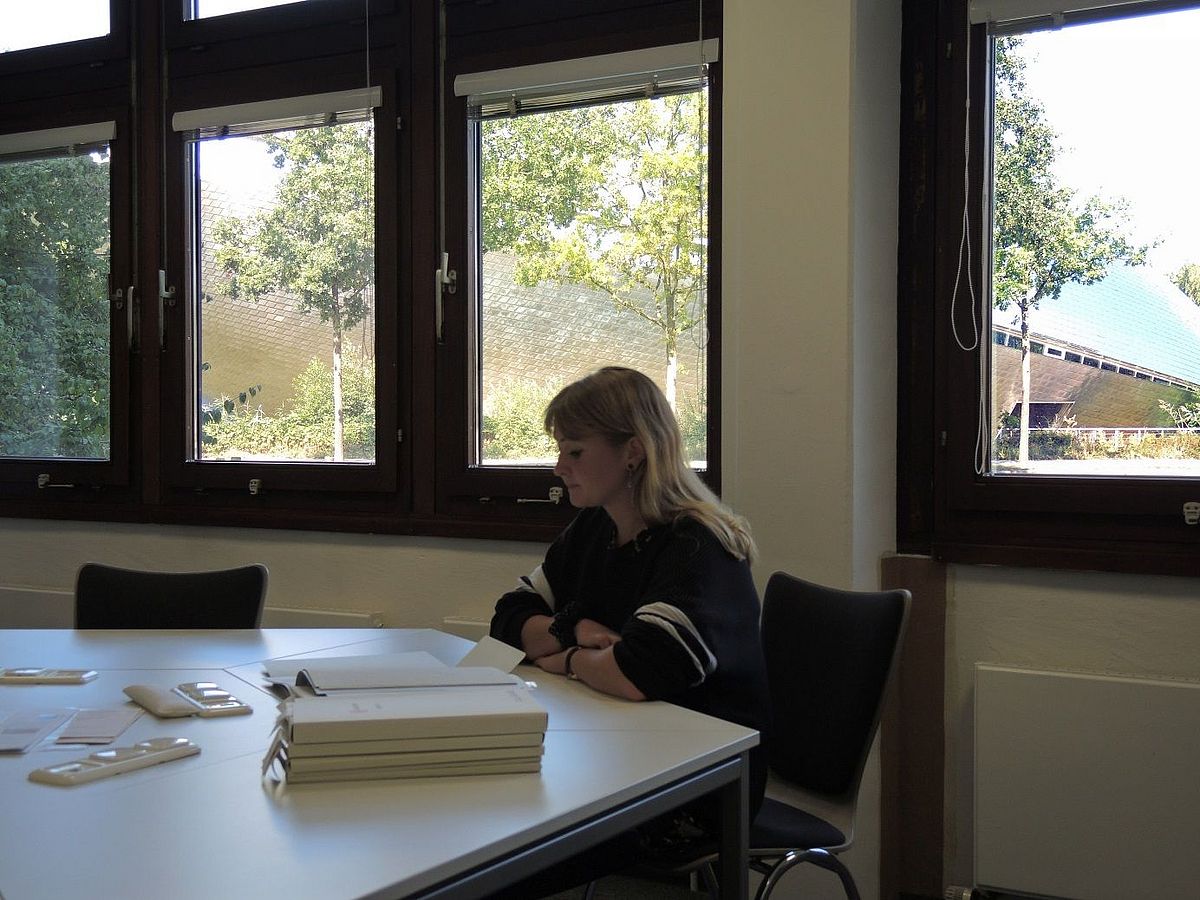A Place of Knowledge – and Remembrance

Speaking with Sigrid Dauks, archivist, MA
It is quiet in the rooms of the archive. The archiving of files and materials from the university requires great concentration.
Ms. Dauks, head of the University Archive Bremen, welcomes me warmly. The materials stored here are sent here from different places – most often institutions of the university. Sometimes it is folders, sometimes hanging files, original images, or old, heavily faded faxes. Information of any quality or type is sifted, analyzed, and stored in the system. According to Ms. Dauks, it is the most difficult step to decide which of the provided documents are worth archiving.
We gave the interview time because diligence is the key principle at the university archive. A wealth of information is kept here: from the academic senate and rectorate, from the departments and research institutions as well as from central administration. In the year 2000, the University of Bremen decided to build an independent archive for this form of self-documentation. Two areas are covered: documentation of the work – that is the organization – and, of course, the main contents. Nevertheless, simply preserving the memory itself is not the only task. Working at the archive is also a technical task to handle the different materials correctly. That takes a lot of knowledge and experience, for example about the amount of wood in paper and about its decay process and possibilities for conservation. Moreover, a lot of know-how around the Bremen Archives Law is needed.
In 1961, the founding committee of the university (which was founded in 1971) began its work. The documents from the 1960s, therefore, are the oldest documents of the university archive. From this moment onwards, the history of the university is filed in the archive – in files, images, flyers, and posters. Inheritances of former professors are a part of the archive as well as exam papers. An incredible amount of data, facts – of knowledge.
Openness, excessive use, dialogue with researchers. Many stories make you smile – you can find them in the ‘Histörchen’, an entertaining collection of university stories. Cooperations with the bremer shakespeare company, other Bremen archives, the house of history in Vegesack and other cultural institutions are lived and maintained. Every other year, the doors are opened for tours and exhibitions as part of the Day of the Archive.
But no need to wait that long: Come by anytime. It is worth it. And the alumni are invited to share the treasures from their time at the university, such as photos and flyers. That way, the time on campus becomes traceable and stays alive.
Ms. Dauks, thank you very much for the great conversation and for opening the ‘holy of holies’ on campus for us.
Author: Manuela Brocksieper

